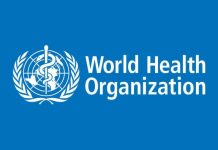
In compliance with the World Health Organisation (WHO)’s recommendation which stipulated mass administration of azithromycin to under-5 children in countries with high infant mortality, the Nigerian Institute of Medical Research (NIMR) in collaboration with Bill and Melinda Gates Foundation, the Federal Ministry of Health, and other stakeholders, have embarked on a project aimed at reducing infant mortality in the country.
The NIMR Director General, Prof. Babatunde Lawal Salako, in an engagement meeting with the Minister of State for Health and Social Welfare, Dr Tunji Alausa, said the project, titled, Safety and Antimicrobial Resistance of Mass Administration of Azithromycin in Children in Nigeria (SARMAAN)2 targets areas with under-five mortality exceeding 80 per 1,000 births and infant mortality surpassing 60 per 1,000 births.
Considering Nigeria with a large population and very high infant and under-5 mortality, Salako said the government believes that such project should be tested, which birthed the first phase of the study in six pilot states which has just ended.
The NIMR DG highlighted the essence of the first phase of the project (SARMAAN 1), saying it examined in particular the antimicrobial resistance that may follow the use of azithromycin. “If indeed we are able to drop mortality, but we are increasing antimicrobial resistance, that would not be good for the country.
“We found out that there was not an increase as expected, rather a little reduction, and then it remained flat.
“Of course these are yet to be published reports, but this is the first thing we saw. Seeing that, we thought we should now try to answer the mortality issue. Now if we give this drug in Nigeria, it will lead to reduced mortality as it did in those other countries”.
He said they are just embarking on the SARMAAN 2, which necessitated planning with stakeholders and government for proper adoption of the project as a policy in reducing infant and under-5 mortality after completion.
The Principal Investigator, SARMAAN 2, Prof. Oliver Ezechi, gave more insights into the safety and efficacy of the treatment, as recorded from the SARMAAN 1, which was conducted in six states of Kano, Jigawa, Sokoto, Kebbi, Abia and Akwa Ibom.
Prior to the Nigerian pilot project, he disclosed that the mass administration of azithromycin showed an 18 per cent reduction in child mortality in studies conducted in Niger, Tanzania, and the Benin Republic.
Ezechi who is also the head of research at NIMR, disclosed that they covered over 3.4 million children and the total of dose given for this purpose was over 4 million doses. He said, “out of the 1.4 million children who took the drug, only less than 2 per cent reported very mild side effects”.
Aside reducing childhood mortality, he added that the project has the potential of generating employment and building capacity, as they have planned to engage about 600 to 700 youths in the project, who be trained and paid for their services.
Prof. Ezechi pointed out that the partners are not saying that SARMAAN is an isolated magic bullet against infant and under-5 mortality, but it is a good addition to other existing treatment to drastically reduce childhood death to the barest minimum in the country.
“We are not saying SARMAAN alone is a magical drug. We are saying, based on what is currently being done in Nigeria, we have this as anti-infant mortality. We can add this on top of what is already existing, since it doesn’t contradict each other, so that we continue to drive down infant mortality in the country”, he noted.










